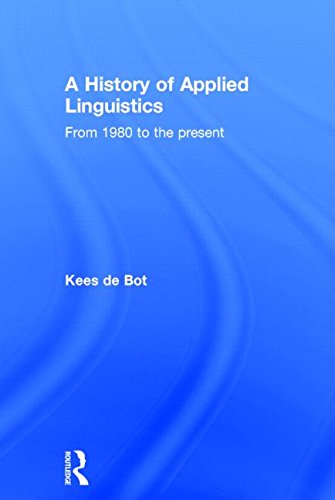

Most ebook files are in PDF format, so you can easily read them using various software such as Foxit Reader or directly on the Google Chrome browser.
Some ebook files are released by publishers in other formats such as .awz, .mobi, .epub, .fb2, etc. You may need to install specific software to read these formats on mobile/PC, such as Calibre.
Please read the tutorial at this link: https://ebookbell.com/faq
We offer FREE conversion to the popular formats you request; however, this may take some time. Therefore, right after payment, please email us, and we will try to provide the service as quickly as possible.
For some exceptional file formats or broken links (if any), please refrain from opening any disputes. Instead, email us first, and we will try to assist within a maximum of 6 hours.
EbookBell Team

4.7
16 reviewsHow has Applied Linguistics been defined and how has the field of Applied Linguistics developed over the last 30 years? Who were the leaders that pushed the agenda? What are the core publications in the field? Who are the authors that have been cited most and how is that related to leadership? What were the main themes in research? Why did formal linguistic theories lose so much ground and the interest in more socially oriented approaches grow? What has been the impact of Applied Linguistics on language teaching?
Adopting a theme-based approach, this book answers these questions and more and forms a history of Applied Linguistics from 1980. The structure of this book is largely defined by the topics covered in interviews with 40 leading international figures including Rod Ellis, Diane Larsen-Freeman, Henry Widdowson, Suresh Canagarajah and Claire Kramsch.
Supplemented with questionnaires from a further 50 key applied linguists, this is essential reading for anyone studying or researching Applied Linguistics and will be of interest to those in the related area of English Language Teaching.